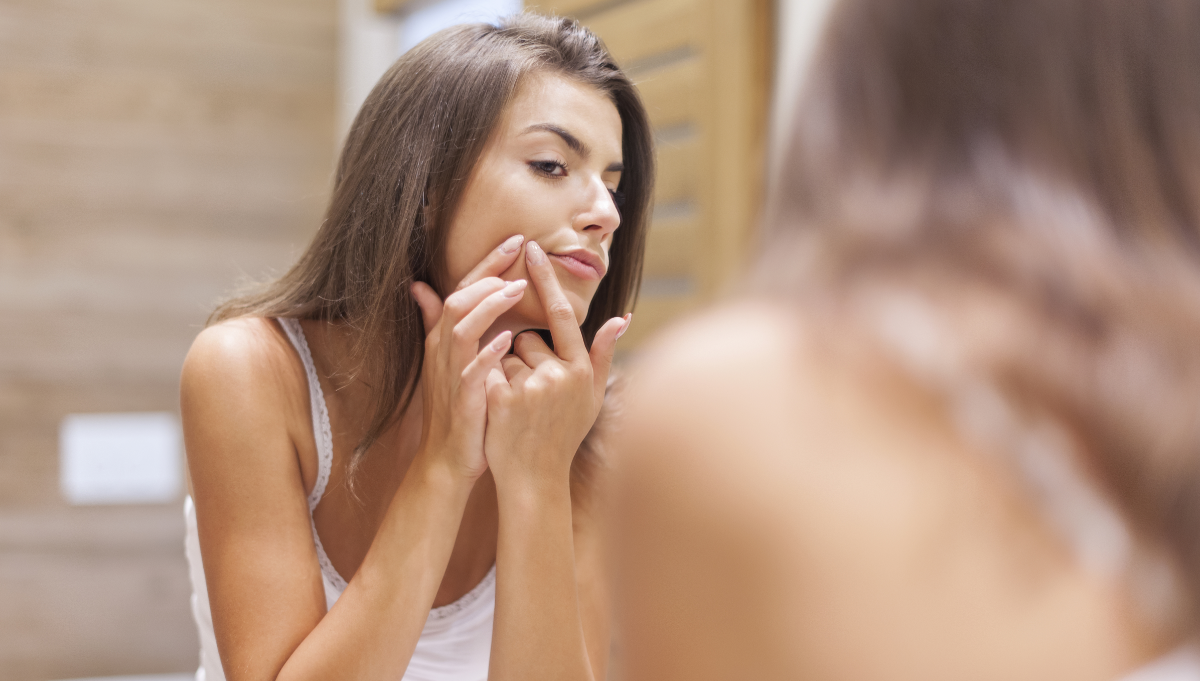
- August 20, 2021
- Amour Beauty
- Comments Off on HOW TO TREAT ACNE
THE CAUSE AND EFFECTS OF ACNE AND HOW TO TREAT IT.
If you suffer from acne, you’re not alone. Up to 85 per cent of Australians develop acne at some stage of their life, with the vast majority of those being in their teenage years. It typically starts just before puberty and mainly affects the face, chest and upper back. Although sufferers are often told they will grow out of it, many never do and continue to experience acne well into their 40’s.
But acne is more than just a skin problem. Sufferers say that acne had negatively affected their self-worth, personal relationships and even their work performance. Skin expert and award-winning educator Debbie Dickson from DMK says, “In my many years of paramedical beauty experience I’ve seen so many people suffering. Acne not only impacts a patient’s physical appearance but claims their confidence, joy and overall self-esteem.”
WHAT REALLY CAUSES ACNE?
The key to managing acne lies in understanding what the root cause of the problem is and treating it appropriately.
Skin produces sebum (oil), which is normally a good thing. It keeps your skin moisturised and helps maintain healthy bacteria. However, hormonal surges, which are particularly rife during adolescence but can also happen during pregnancy and menstruation, cause the skin to produce excess sebum that blocks the pores. The sebum mixes with dead skin cells and normal skin bacteria in the hair follicle, resulting in congestion and a decrease in oxygen flow. If the blockage of dead skin cells and sebum stays below the skin, you get a whitehead. If the blockage reaches the air, it turns dark and becomes a blackhead. When bacteria penetrate the surrounding tissue, it can become inflamed with small red bumps (papules), white or yellow pus-filled pimples (pustules), or large red bumps (inflamed nodules).
Acne skins also have trans-epidermal water loss (TEWL), meaning they have plenty of oil but not enough water. The oil in the skin needs an ample amount of water under it to push it up onto the surface to create the skin’s acid mantle. The oil in an acne-prone skin can also be thicker and waxy, due to a lack of essential fatty acids in the diet. The area on the face known as the T-Zone, made up of the forehead, nose, around the mouth and chin, contains a higher amount of oil glands, so tends to get more blackheads, congestion and breakouts.
Some people are genetically predisposed to acne. Stress can also be a major contributor to acne as are hormonal imbalances or fluctuations, and conditions like polycystic ovary syndrome. Other common triggers for acne are stress, warm humid weather conditions, not getting enough sleep and a poor diet. There has been a big focus on digestive health in the link to acne in recent times and it basically comes down to if you have a skin problem, you have a gut problem. Anything that causes a spike in blood sugar can, theoretically, increase inflammation and insulin levels, therefore leading to excess oil and pimples.
ANOTHER INFLUENTIAL FACTOR IS OUR MODERN LIFESTYLE AND THE INCREASE OF ENVIRONMENTAL TOXINS AND POLLUTANTS. “THESE FACTORS AFFECT OUR ENDOCRINE SYSTEM,” SAYS MS DICKSON. “DMK CLINICS ARE SEEING A SURGE OF ESTROGEN DOMINANCE THAT IS ONE OF THE CONTRIBUTING INFLUENCES INCREASING THE INCIDENCE OF ADULT ACNE.”
WHAT IS THE BEST WAY TO TREAT ACNE?
Acne needs to be addressed at the core of the problem and not just treated superficially or it will keep returning. Therapeutic treatment methods can largely be divided into three major categories:
1. those that reduce sebum
2. those that reduce cell turn over and normalise any abnormalities in the cell division
3. those that reduce inflammation and kill the acne bacteria.
An effective clinical acne treatment should first involve a good cleansing and detoxifying process followed by a thorough exfoliation that removes excess dead cell material. If the skin is very congested and clogged, a further formulation may be applied to extract any debris trapped deep down in the sebaceous glands and hair shafts and bring it to the surface. This should then be followed by a treatment to improve the skin’s functioning, reduce inflammation and to heal any infection.
To finish the process, the skin should have the acid mantle restored and the skin rebalanced and replenished with vital amino acids which are the building blocks of cell life, providing proteins, energy and food. Most importantly, good water levels need to be rebuilt to ensure the skin will eliminate harmful waste materials that get trapped under the skin causing breakouts.
WHAT CAN I DO AT HOME?
Working to revise the causes of acne can take time. DMK suggests a rigorous at-home regime as well as in-clinic treatments.
Firstly, it is essential to keep the skin clean by cleansing morning and night, and twice if wearing makeup. You also need to regulate the skin’s oil production and cell turn over and increase the free water levels. This will help remove any initial congestion and rebuild the skin’s acid mantel to protect against bacteria and dehydration – all part of the fundamental process to maintaining healthy skin and a clear complexion.
DMK HAS DEVELOPED A UNIQUE FIVE-STEP PRODUCT RANGE FOR HOME TREATMENT CALLED THE KLEAR COLLECTION THAT IS SUITABLE FOR USE FROM MILD TO SEVERE BREAKOUTS. THE INDIVIDUAL PRODUCTS COVER EVERYTHING FROM CLEANSING THROUGH TO SPOT TREATMENT AND INCLUDE PRODUCTS THAT KILL THE ACNE-CAUSING BACTERIA, REDUCE INFLAMMATION AND INCREASE THE ESSENTIAL FATTY ACIDS SO THE SKIN CAN FILL UP WITH WATER. THEY ALSO MAKE THE SEBUM THINNER AND MORE LIQUID, SO IT FLOWS THROUGH AND UP ONTO THE SKIN SURFACE.
Some other useful products to investigate include Regul8’s Digestive Tune-Up. This is a supplement system that works to cleanse, restore and maintain the health of the gut, while Regul8’s Relax can assist in managing stress levels. To help internally regulate the skin’s functions try an essential plant-based fatty acid supplement like DMK’s EFA Ultra, which also regulates oil production and flow to reduce acne.
Also, consider changes to your lifestyle and diet. Try consuming more plain water and manage a clean, healthy diet by reducing or removing sugars, refined carbohydrates and dairy.
The basic mantra to treating a skin condition like acne comes down to REMOVE, REBUILD, PROTECT and MAINTAIN, a philosophy developed by DMK founder Danné Montague-King. In a quest to find a solution for his own acute acne condition, he created a skin revision system that is matched to an individual’s biochemistry. DMK’s skincare program is made from botanical-based paramedical products.
